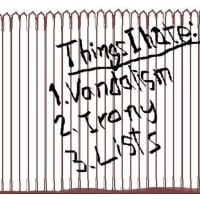サンデル教授のJUSTICEには色々な場面でのJUSTICEとは?を問いかけます。
Imaine yourself in the predicament with a friend hiding in the closet and the murderer at the door. Of course you don't want to help the murderer carry out his evil plan. That is a given. You don't want to say anything that will lead the murderer to your friend. The question is, what do you say? You have two choices. You could tell an outright lie: "No, she's not here." Or you could offer a true but misleading statement: "An hour ago, I saw her down the road, at the grocery store."
From Knat's point of view, the second strategy is morally permissible, but the first is not. You might consider this caviling. What, morally speaking, is the difference between a techinically true but misleading statement and an outright lie?
日本語には嘘も方便という便利な、都合の良い解釈もありますが、上の引用文に出てきた "caviling" は何でしょう?
辞書では原形の動詞の意味のみを載せているものが多いので "cavil" の説明を引用します。
・Cambridge English Dictionary: to make unreasonable complaints, especially about things that are not important
・Vocabulary.com: raise trivial objections
If your only cavil to your family's trip to Disney World is that you don't like airline food, you probably won't win the argument. A cavil is a petty objection that distracts from a true argument.
Cavil is not a word that comes up all that often. You can replace it with the more commonly used word, quibble, and still have the same meaning. If you cavil over a restaurant bill, you argue over the minute details of who owes what ?? like whether your portion of the bill is $10.00 or $10.50
同義語としては "quibble" の他に "carp" があります。
最新の画像[もっと見る]
-
 miner's lettuce
11ヶ月前
miner's lettuce
11ヶ月前
-
 meme
2年前
meme
2年前
-
 head calls
2年前
head calls
2年前
-
 cutworm
4年前
cutworm
4年前
-
 X-ray machine
8年前
X-ray machine
8年前
-
 hush puppies
8年前
hush puppies
8年前
-
 Things I Hate
8年前
Things I Hate
8年前
-
 fence straddling
9年前
fence straddling
9年前
-
 irrupt
10年前
irrupt
10年前
-
 ロマネスク収穫
11年前
ロマネスク収穫
11年前

















※コメント投稿者のブログIDはブログ作成者のみに通知されます